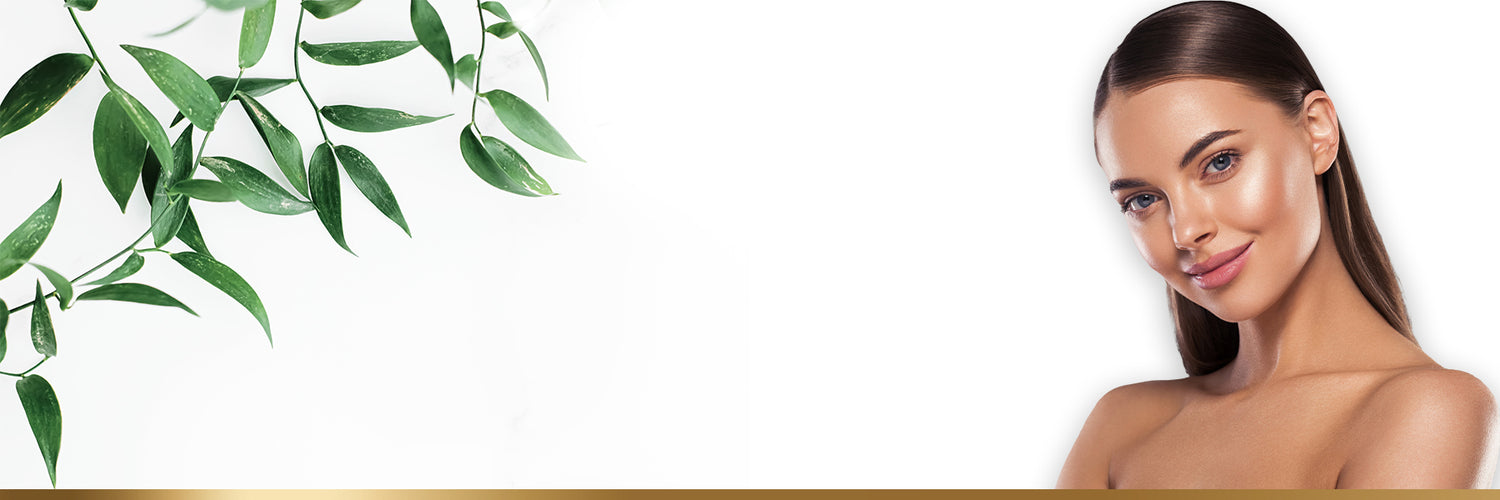
Welche Hauttypen gibt es und welche Pflege benötigen sie?
Im Allgemeinen lassen sich sieben Hauttypen unterscheiden, die alle von unterschiedlichen Pflegemaßnahmen profitieren.
-
Normale Haut
Dieser Hauttyp ist total unkompliziert, weder zu trocken/feuchtigkeitsarm, noch zu fettig. Die Poren sind klein, der Säureschutzmantel ist intakt, die Haut zeigt eine glatte, rosige Oberfläche. Talg-Produktion, Feuchtigkeitsgehalt, Verhornung sowie Abschuppung stehen im Gleichgewicht.
Von den natürlichen Ölen bieten sich zur Pflege Jojobaöl, Hagebutenöl und auch Arganöl an. Sie geben der Haut, das, was sie braucht, um schön zu strahlen, überpflegen sie aber nicht. -
Trockene Haut / Sebostase
Bei der Sebostase sind die Talgdrüsen nicht aktiv genug. Der fettige Schutzfilm der Haut bleibt dauerhaft zu dünn, sie verliert immer mehr Feuchtigkeit. Das führt bei Betroffenen zu trockener Haut mit Spannungsgefühlen. Oft ist sie auch schuppig, gerötet, juckt und kann sich entzünden. Die Elastizität der Haut ist eingeschränkt, daher bilden sich bei trockener Haut schneller Knitterfältchen oder tiefere Falten aus als bei Personen mit öliger Haut.
Sebostase-Haut sollte immer gut gepflegt werden – am besten mit fetthaltigen und intensiv feuchtigkeitsspendenden Produkten. Besonders zu empfehlen sind Naturkosmetik und natürliche Öle, da sie auf belastende künstliche Zusatzstoffe verzichten: Arganöl hilft der Haut, Feuchtigkeit zu speichern, verleiht ihr Spannkraft und Vitalität. Außerdem hilft es bei der Regeneration. Hagebuttenöl spendet der Haut Feuchtigkeit und bekämpft Juckreiz aufgrund seines hohen Anteils an essentiellen Fettsäuren. Mandelöl ist reich an rückfettenden Substanzen und Vitaminen. Es versorgt die Haut mit Feuchtigkeit und lindert das Spannungsgefühl.
Auch Jojobaöl ist sehr gut für trockene Haut geeignet, da sie die wertvollen Fettsäuren geschmeidig, widerstandfähig und elastisch machen. -
Fettige Haut / Seborrhoe oleosa:
Als „fettig“ wird Haut beschrieben, bei der verstärkt Talg gebildet wird. Sie ist an vergrößerten, deutlich sichtbaren Poren, Mitessern, Pusteln, Pickeln oder Papeln (Erhebungen) zu erkennen. Zudem glänzt sie meist stark. Aufgrund der Hormonverschiebungen tritt Seborrhoe oleosa meist in der Pubertät auf. Genetische Faktoren, Stress, bestimmte Medikamente oder Kosmetikprodukte, die Irritationen beim Benutzer hervorrufen, sind ebenfalls mögliche Auslöser für fettige Haut.
Auch dieser Hauttyp benötigt eine spezielle Pflege: Für die Reinigung können Gele und Gesichtswasser ohne Alkohol genutzt werden. Einmal wöchentlich ein Peeling (möglichst ohne Kunststoffkügelchen, also gesundheits- und umweltschädigende Mikroplastik) und fettreduzierende Masken, z. B. aus Heilerde, verfeinern das Hautbild.
Auch die natürliche Öle helfen: Besonders bewährt hat sich Teebaumöl, da es austrocknend und desinfizierend wirkt. Die betroffenen Hautstellen sollten mit einem in Teebaumöl getränkten Wattestäbchen betupft werden. Am besten eignet sich hierzu die Anwendung über Nacht. -
Akne-Haut / Akne vulgaris (auch Acne vulgaris)
Die Akne vulgaris ist die am häufigsten auftretende Form der Akne. Sie hat nichts mit Unsauberkeit, mangelnder Hygiene oder einer falschen Ernährung zu tun. Akne ist sozusagen eine Überempfindlichkeitsreaktion der Haut auf Sexualhormone, deren Produktion mit der Pubertät einsetzt. Dadurch entstehen die schmerzhaften Pickel, roten Pusteln, Papeln und Eiterpickel. Akne kann ebenso wie die fettige Haut mit dem natürlich desinfizierenden Teebaumöl optimal behandelt werden.
-
Mischhaut / Seborrhoe sicca
Die Mischhaut ist der am weitesten verbreitete Hauttyp. Hierbei kommen zwei Hauttypen zusammen – normale/trockene und fettige/unreine Haut. Typisches Merkmal: Die Zone von Stirn, Nase und Kinn (T-Zone) erscheint fettig glänzend, die Haut im Wangenbereich ist eher trocken. Die unterschiedliche Beschaffenheit der Hautpartien musst Du bei der Pflege beachten, denn die Bereiche der öligen Haut dürfen nicht überfettet werden. Im Gegenzug brauchen die Bereiche der trockenen Haut vermehrt Feuchtigkeit. Zur Pflege eignet sich auch hier das entzündungshemmende Teebaumöl (bitte nur lokal auftragen!) sowie Jojobaöl. Es ist feuchtigkeitsspendend, entzündungshemmend und für alle Hauttypen geeignet.
-
Empfindliche Haut
Trockene und sensible Haut stehen in enger Verbindung. Denn wie auch bei der trockenen Haut ist der Feuchtigkeitsverlust beim empfindlichen Hauttyp hoch. Die Epidermis ist häufig zu dünn, die Haut wird dadurch angreifbarer. Das zeigt sich an ihren Reaktionen: Sensible Haut neigt zu Trockenheit, Rötungen, Schuppen, Ausschlag und Schwellungen. Auch Spannungsgefühle, Brennen, Juckreiz und Kribbeln können auftreten. Sonne oder Kälte stressen sie.
Um empfindliche Haut korrekt zu pflegen und sie zu unterstützen, solltest Du Kosmetikprodukte ohne Duft- und Farbstoffe sowie Konservierungsmittel verwenden. Bei Naturkosmetik kannst Du also aus dem Vollen schöpfen: Jojobaöl, dessen wertvolle Fettsäuren die Haut geschmeidig und widerstandsfähig machen, ohne sie zu belasten, ist eine hervorragende Wahl. Zusätzlich weist es noch einen natürlichen Lichtschutzfaktor auf. Auch Mandelöl eignet sich perfekt zur Pflege empfindlicher Haut: Das darin enthaltene Vitamin E begünstigt die Speicherung von Feuchtigkeit. Calcium sorgt für eine gesunde Hautschicht. -
Reife Haut
Der Aufbau der verschiedenen Hautschichten verändert sich mit zunehmendem Alter: Sie werden dünner. Fettschichten, Kollagenfasern und elastische Fasern nehmen ab. Auch die Durchblutung und die damit verbundene Versorgung mit Sauerstoff und Nähverringert sich. Die Haut wird trockener, ist leichter verletzbar und bildet Falten aus.
Naturkosmetik hilft hier sehr gut, um die reifere Haut bei Laune zu halten. Besonders effektiv ist das Arganöl: Es ist extrem pflegend, regenerierend und feuchtigkeitsspendend. Es eignet sich perfekt als Anti-Aging-Mittel.
Wir hoffen, wir konnten Dir mit diesen Pflege-Tipps rund um die Deinen Hauttypen helfen.
Übrigens: Falls Du nicht recht weißt, welchem Typ Deine Haut angehört, kannst Du hier einen Online-Test machen:





